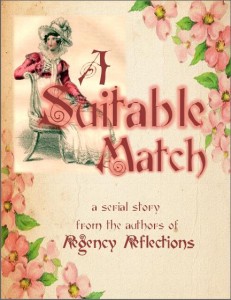 To kick off our second year of celebrating Inspirational Regency fiction, we are presenting the serial story, A Suitable Match. At the end of the month we’ll be giving away a fabulous prize package filled with items tied to the story. There are no hidden items in this section, but you can still enter by finding the items in the previous sections. Details and a list of prizes can be found here.
To kick off our second year of celebrating Inspirational Regency fiction, we are presenting the serial story, A Suitable Match. At the end of the month we’ll be giving away a fabulous prize package filled with items tied to the story. There are no hidden items in this section, but you can still enter by finding the items in the previous sections. Details and a list of prizes can be found here.
Missed an earlier section? Read it here: 1 2 3 4 5 6 7 8
London, England
April 1818
The Grosvenor Square townhouse wasn’t much larger than Cressida’s cottage outside Bath—except it went up instead of out. If Cressida worried about not getting enough exercise with no more need to walk to and from the village for food or ink or church, now that she would live in London with servants, at least for three months, those fears fled with each flight of steps she climbed to her bedchamber. It perched atop the chamber of the peer’s widow, who would act as her chaperone and means of introduction into the ton. That good lady’s chamber sat atop a sitting room atop the dining room.
“I think,” Cressida told Knighting, as she closed the door behind the footmen with their luggage, “you won’t want to be hiking up those steps too many times a day.”
“It’s no trouble, Miss.” Knighting dabbed at her runny nose. “Or won’t be soon enough.”
“Why do you not go to your chamber and lie down. Travel was difficult.”
More difficult than it should have been.
Cressida cast her own bed a longing look. It could have been a pallet on the floor with a single blanket and appealed to her at that moment. Instead, it crowed of its luxurious softness and comfort with each plumped pillow edged in lace, and white satin counterpane embroidered with pink roses. A half hour’s rest was all she needed to set her mind at ease, surely. Thirty minutes alone to think without concerns about being disturbed.
Except she must use those 30 minutes to wash off the dust of travel, change out of her crumpled gown, and pin up her hair before meeting Lady Penelope Dove.
“I suppose I need your help with the hooks on my gown.” Cressida suppressed a yawn. “Do you think any of my gowns are acceptable?”
“I don’t think any of your gowns are acceptable. They are all so out of fashion.”
“That cannot be helped.“ Cressida crossed the room with its step-silencing Persian carpet, and opened the nearest trunk. “Somewhere must be one that isn’t hopelessly crumpled. I don’t wish for you to have to go all the way downstairs to fetch an iron. Perhaps I could—“
“Never.” Horror colored Knighting’s voice and widened her eyes. “I’ll do it. Take that blue sarsnet and find your blue paisley shawl. Perhaps a fichu in the event her ladyship is a high stickler for modesty.”
Cressida was a high stickler for modesty—now. Too many of her gowns from her disastrous Season proclaimed what a flirt she had been then, so desperate to please Father and find a titled gentleman to raise herself up from a cit to, at the least, a gentlewoman, she applied every feminine wile she possessed and had practiced on Ross Ainsworth scarcely old enough to know the meaning of the word “flirt”, then she learned a few more techniques in the art of coquetry from her competitors on the marriage market. She had caught herself the second most desirable bachelor that year.
Miles, Lord Twiford, came first in prospects. He was not merely handsome and titled. He brought a sizable fortune with him. Tristan, Lord Chard, merely possessed the looks and title. Ross Ainsworth offered only his looks and a potential fortune. In the end, she obtained none of them. Now, she could attain any of them with a wave of her fan.
Now that she thought about it, where were her fans? One had gotten so soaked in violet scent when the carriage crashed she left it behind in the inn. That left her with two, as she had sold the rest of the dozens on which she once squandered money, to pay for her silent escape from London. She had been playing with the pink one in the carriage while the gentleman all laid their claims out before her, and must have left it behind when she bolted for the house.
She thought she had left behind the old Cressida that day she knelt in the church with no one around, and asked the Lord to take her heart, her life.
Apparently the prospect of a fortune again and having gentlemen vie for her hand in marriage, had prompted her to take back her life and go her own way with no regard for what she did with her heart. She must spend considerable time in prayer that night—and many days afterward—asking the Lord for guidance. Guidance and a lot of forgiveness.
“Kissing Ross indeed.” She scrubbed at her lips with the back of her hand.
What had intrigued her then repelled her now. The former, flirtatious Cressida would have suggested she kiss all three of the gentlemen to see who intrigued and repelled her.
She shook her head and shoved thoughts of males out of her mind. She must hasten with her toilette before descending to the parlor to meet her dragon for the husband hunting season.
“Surely she isn’t a dragon with a name like Lady Penelope Dove,” Cressida mused aloud.
Cressida expected a delicate little woman in gray satin and gray curls.
What met her in the parlor was a robust woman in purple velvet with a matching turban wound around her dyed red hair. Without offering a word of greeting, she waved a feathered fan large enough to have taken an entire peacock’s tail, to beckon Cressida to stand in front of her, then proceeded to stare at her charge from other side of a truly Roman nose.
“So your great-aunt wasn’t exaggerating when she called you a beauty,” her ladyship declared in a voice like a gong. “that will make up for your lack of fashion sense.”
Cressida opened her mouth to remind the woman she had scarcely had the time or money to refurbish her wardrobe, then closed it again. The problem of her dress would be solved shortly.
And so it was. Before the dragon lady would allow Cressida to set foot in a drawing room, including her own if anyone else was present, she dragged her charge from Grafton House for fabric, to the modiste for the creation, from shoemakers, to glove makers, and half a dozen other businesses in-between.
Each day, when she returned exhausted, Cressida found tributes to her from the three contenders for her hand—hothouse roses from Twiford, wildflowers from Ainsworth, and boxes of bonbons from Chard. Cressida sent notes of thanks to all of them and, even without the dragon lady’s strictures, refused to see any of them.
“I can’t think when any of them are around,” she confided in Knighting amidst a sea of new gowns one day. “When I’m with Twiford, he seems so strong and yet charming, I think he would make a fine husband. When I’m with Ainsworth, I remember what a grand time we had together as children and what friends we were then, and having a husband who is also a friend would be rather nice. And when I’m with Chard. . .”
Those feelings she could not discuss with anyone since she knew no words to sum up a blend of regret, hurt, and fear.
She discussed them a great deal with the Lord, especially the day the dragon decided she was ready for public viewing and escorted her to a rout. “For maximum exposure.”
Although the event occurred on the other side of the square, they took the carriage and sat in a line of vehicles for a full half hour and more awaiting their turn to alight and join the throng streaming into the house, while attempting not to bump into the river of people exiting the house. Cressida proved adept at avoiding collisions until she reached the upper floor, stepped into a parlor, and came face-to-face with Miles, Lord Twiford.
It was more like her face to his coat buttons. She jumped.
His hands closed over her shoulders. “My dear lady, may I say you look stunning this evening?”
She glanced up at his handsome face and believed him. He looked stunned, bowled over, adoring. And all she felt was. . .nothing. She wasn’t embarrassed. She wasn’t giddy, and she wasn’t moved to say anything more than, “I forgive you for how you treated me three years ago, Lord Twiford. Let us place everything there in the past and forget.” With a smile intended to appear artificial, she dropped into a curtsy, then swept around him.
From the corner of her eyes, she saw him heave a sigh deep enough to expand his already broad chest and threaten to pop the seams of his fitted coat. He had gotten the message—he would not be her choice.
A fog surrounded the rest of the twenty minutes necessary to make her way back outside with Lady Dove.
“That went well,” her ladyship said.
It had. Cressida looked at Twiford and knew she had never felt more for him than sadness that they couldn’t have been friends. Perhaps if they had, she could have talked to him about Chard’s need for her fortune and how he would manage once she lost it. Although she believed Twiford’s feelings for her ran as deep as he said, she now realized the only reason why she considered him a possible suitor for her hand was that she would never need to worry that he wanted her fortune—and he was rather fine to look at.
With one suitor dismissed, she prepared herself for encounters with the other two.
Although she attended many social occasions over the next week—balls, breakfasts, and several soirées—she saw neither Ainsworth nor Chard. Chard, she learned quite by accident on the fourth day, had been called away from town on some family emergency. Truth? Or was it a fiction to take himself out of the running?
A twinge sharper than disappointment pinched at Cressida’s heart. Annoyance that he hadn’t sent around a message telling her he was leaving London, or regret she might not see him?
Who she saw while shopping on Bond Street with the dragon, was Ross Ainsworth.
She should have known better than to meet him in public. The sight of him looking rather dashing in a fine coat and pantaloons, made her mouth go dry. Remembering him kissing her made her cheeks grow hot. Remembering how she had kissed him back made her entire body blush. A good thing the dragon was distracted by a shop window.
“Cousin.” He greeted her with a bow.
She curtsied in return. “You look well, Cousin.” She smiled sweetly. “Prosperous. Trading on prospects you may not have?”
His gaze dropped to her lips. “Do I not? I have, you know, done quite well for myself while in my self-imposed exile. Or did you think I was merely after your fortune?”
“I. . . Well, I. . .” She swallowed. She blushed some more. She turned to the dragon. “Allow me to present you to Lady Dove.”
“We are acquainted,” Ross said. “Your servant, my lady.”
“Ross, you scamp.” Lady Dove embraced him like a long-lost son.
The two of them set to talking. Her ladyship tucked her hand into the crook of his elbow, and they strolled down the street, leaving Cressida with Miss Knighting and the package-bearing footman.
Cressida watched Ross’s retreating back, and a smile curved her lips as a weight lifted from her shoulders. She liked knowing Ross was doing well and not merely after her fortune. She was happy he had turned his life over to the Lord. She didn’t in the least mind seeing him walk away from her because she didn’t love him for more than the cousinly affection and antagonism they had enjoyed all their lives.
But did she love Chard still? Perhaps she never had.
Over the next three months, she wavered between longing to see him again, to wanting to give him the cut direct the instant he bothered to show his face in the ton again. Twiford called on her and danced with her often. They developed a lighthearted friendship. Ross called on Lady Dove, and he and Cressida fell into their old camaraderie and affection from before he left England. But Chard merely sent the occasional note wishing her well accompanied by another box of sweets.
And the deadline for when she must wed or lose her chance at a fortune drew nearer and nearer. It grew so near she would have proposed to Twiford or Ross to avoid more crushing poverty for the rest of her life. But Twiford and Ross had both begun to court charming young ladies, a fact Cressida didn’t mind. She was courted by so many gentlemen she wanted to flee back to the country.
In the end, she began to pack two days before her deadline, soaking her beautiful new clothes with her tears. She wished she knew if she wept for the fortune lost or Chard’s unexplained absence.
The day of her deadline, she and Knighting boarded Lady Dove’s traveling coach and headed west on the Bristol Road. That night they took a room at the George and Pelican. She half expected to find all three gentleman awaiting her in the private parlor. She found none and went to bed without any supper, wondering how much money she would get for her gowns in Bath shops. The jewels she had left behind with the solicitors. They would no longer be hers as of midnight.
Midnight came and went with Cressida restless and aching in heart. “Why, Lord, why can I not have had this? I could do much more good with money than without.”
Yet what had she done for the past three months but treat each gentleman as a means to an end instead of appreciating him for the person he was? She had treated Chard that way—interested in his title to elevate herself. If she had accepted his offer in these past three months, she would have, in a sense, married him for money, not the love he wanted. She might never have been certain she loved him or not. Now, knowing she had lost him, she knew she loved him.
Heavy-eyed and heavier hearted, she descended the steps the following morning.
Chard stood in the doorway mud-spattered and stern-faced. “Running away again, Cressy?”
She gripped the banister. “Still chasing a fortune, Chard? You’re too late if you are. It’s no longer mine as of last night.”
Inn servants and guests stopped walking and talking to stare.
Heedless of the audience, Chard paced to the foot of the steps. “No matter what I said to you before, you never believed I wanted more than your fortune. That’s why you ran away.”
“And you didn’t come after me once I was poor. Well, I’m poor again, so you’re wasting your time.” She turned and started up the stairs.
He covered the distance two treads at a time, caught her on the landing and blocked her retreat. “When are you going to stop running away from me?” His face and voice softened. “Running away from us?”
“Who’s running away? You spent the past three months in parts unknown.”
“I’ve been at the bedside of an uncle who deserved my devotion in his last days, considering he paid my father’s debts three years ago.” He raised his hand, lowered it again, lifted it to brush his thumb across her lower lip. “I buried him three days ago.”
“I’m sorry.”
“I’m sorry too. Besides helping me get my estate paying again, he told me that if you didn’t love me enough to be honest with me about your fortune, I should let you go and wait for the Lord to provide a bride without money being a part of the equation.” He smiled. “That’s why I waited for today—so your money would no longer be part of the equation.” He curved his hands around her face. “Tell me, Cressida, do you have the answer to the rest of the sum? Do you love me?”
“I just gave up a fortune because I love you too much to give in to the temptation of the other half dozen proposals I received. The money wasn’t worth it.” She peeked at him through her lashes. “Though Twiford is rather dashing in evening dress, and Ross kisses rather—“
He stopped her claim with his lips on hers, firm yet smooth, warm and tasting of rain, sweeter than all the bonbons he had sent her over the past three months.
“Not nearly as well as you,” she finished her previous declaration about kissing ability, without moving her mouth from Chard’s. “But perhaps I need to know for cer—“
He kissed her again, and she was most certain of many things—she did love him, he was a better kisser than Ross, and she had most definitely stopped running away.
In the entryway below, guests and servants applauded.
Did your favorite man win? If he didn’t, be sure to come back Wednesday for a special surprise.
Remember there is no prize hidden in today’s section. You can enter in the previous sections until 5:00PM Eastern on Tuesday, February 26. The winner will be announced in Wednesday’s post.
Originally posted 2013-02-25 10:00:00.
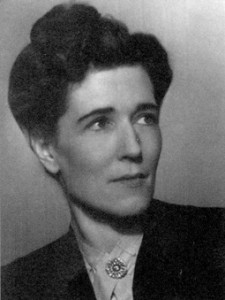
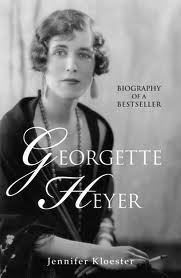 More important are the details about her ups and downs as a published author. More ups than downs from most writer’s perspective. She sold her first book when she was nineteen. One of her detective novels was banned by the Irish government as being obscene (it’s not) until the 1960s. And although it rather makes me sad, I like the details about her personal habits such as how she smoked two packs of cigarettes a day for most of her life. It just doesn’t fit my image of this educated and talented Englishwoman born right after the turn of the 19th century. The ways in which she stayed awake when on deadline make me cringe as much as did some of her business decisions.
More important are the details about her ups and downs as a published author. More ups than downs from most writer’s perspective. She sold her first book when she was nineteen. One of her detective novels was banned by the Irish government as being obscene (it’s not) until the 1960s. And although it rather makes me sad, I like the details about her personal habits such as how she smoked two packs of cigarettes a day for most of her life. It just doesn’t fit my image of this educated and talented Englishwoman born right after the turn of the 19th century. The ways in which she stayed awake when on deadline make me cringe as much as did some of her business decisions.
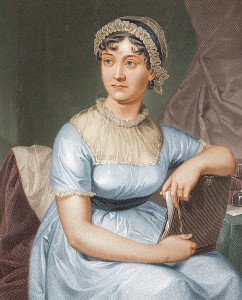
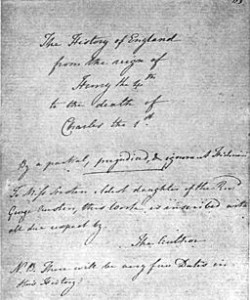
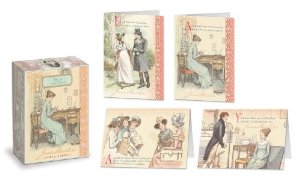 This week we’re giving away a lovely set of Jane Austen notecards. For a chance to win, please leave a comment on any of the posts this week. winner will be drawn Monday, August 12. Winner must have a mailing address within the United States.
This week we’re giving away a lovely set of Jane Austen notecards. For a chance to win, please leave a comment on any of the posts this week. winner will be drawn Monday, August 12. Winner must have a mailing address within the United States.

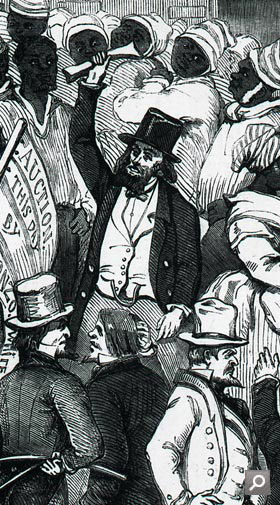

 Laurie Alice Eakes
Laurie Alice Eakes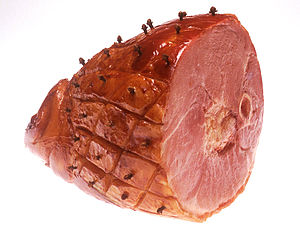 One common Easter tradition is to serve ham. Yes, it makes a great deal of sense in that it’s easy to prepare for a large crowd; however, the reason why ham became a traditional Easter meal is that, after a long winter past harvest and slaughter, ham was one of the few meats still edible in the larder.
One common Easter tradition is to serve ham. Yes, it makes a great deal of sense in that it’s easy to prepare for a large crowd; however, the reason why ham became a traditional Easter meal is that, after a long winter past harvest and slaughter, ham was one of the few meats still edible in the larder. One Easter tradition that seems to have died out—and with rather good reason—is the consumption of tansy.
One Easter tradition that seems to have died out—and with rather good reason—is the consumption of tansy.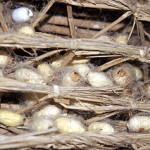
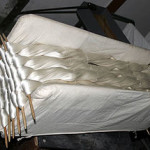
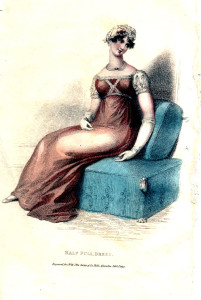
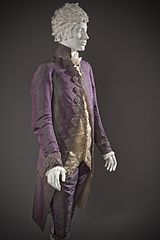
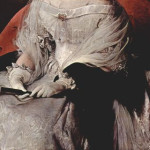


 To kick off our second year of celebrating Inspirational Regency fiction, we are presenting the serial story, A Suitable Match. At the end of the month we’ll be giving away a fabulous prize package filled with items tied to the story. There are no hidden items in this section, but you can still enter by finding the items in the previous sections.
To kick off our second year of celebrating Inspirational Regency fiction, we are presenting the serial story, A Suitable Match. At the end of the month we’ll be giving away a fabulous prize package filled with items tied to the story. There are no hidden items in this section, but you can still enter by finding the items in the previous sections.